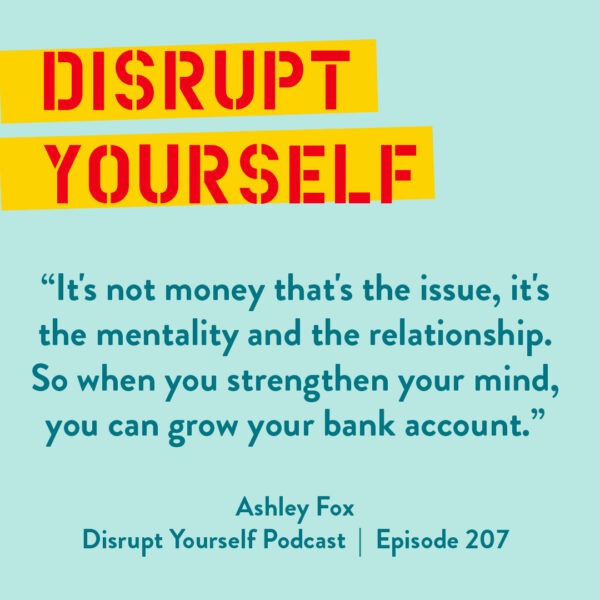Money and I (like sugar) have had a complicated relationship–––over the past several years I have been working hard to change my narrative; happily, I am making progress.
It turns out, money issues were a challenge for many of my ancestors as well. This past year, I have spent time each week exploring my roots. This journey has been a fascinating and wonderful puzzle. In the process, I discovered I had relatives that were in the literal poorhouse, like in a Dickens novel.
We tell ourselves stories about money, and then we make those stories come true, even if they began as lies.
And those stories get passed down for generations.
That’s why I loved the podcast episode with Ashley M. Fox. Ashley, like me, and perhaps like someone you know, wanted to change her narrative around money.

Her first job out of college was helping people with positive narratives regarding money build on those narratives. Through her work, Ashley discovered a secret sauce of sorts to having a healthier relationship with money. Now, she is on a mission to share what she has learned with us.
You’ll want to listen to the podcast, but here are a few highlights:
1. No matter where you are from, what you started out with, what you do and do not have, it is possible to build wealth; you can be the transitional figure in your family. You can change your family tree.
2. If you have emotional baggage around money and families / guilt and shame, go to therapy.
3. Observe how you talk about money to yourself and around your family. What stories are you telling yourself? If you are always talking about debt, then you will likely stay in debt. Conversely, if you talk about building wealth, your brain will find a way to do that.
For example, if you say, “Oh, they are rich…”, is there an implicit statement in there, insinuating that you can’t be?
4. Money is our employee––whether you are an entrepreneur or a working professional, money needs to work for you. Give your money a job.
5. Invest in companies you know, use and believe in––instead of spending that extra $100, invest it. You can start with something like Stockpile. Which I do.
6. Start now. Today.
As Ashley wisely said, money is an employee, put it to work. If we are a good manager of our money, we can be in a position to provide for our family beyond this generation and do good in the world beyond our physical presence. We can more quickly scale our own S Curves while also making it possible for others to scale theirs.
If you, or someone you know, wants to change your/their narrative around money, listen to this episode, and then go back and listen to my interview with Jonathan Mendonsa about financial independence.
Again, give your money a job.
My best,
Whitney

